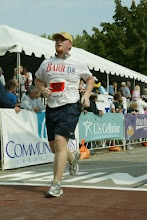Mash
I used 3 gallons of water despite this style's usual recommendation of using 1 quart per lb of grist. I heated this mash up to 150F, then let it rest for ~30 minutes, and then turned the heat back on and accidentally let it get to a boil. Not sure that is a good thing for the flavor, but it looks to be turning out OK so far, but the color is a little dark and I suspect that the boil is the reason for that.
Boil
I really had to drag out the boil on this one in an attempt to get the IBU as high as I wanted, but it falls short compared to my other batch. I was working with 1 oz of Kent Goldings and 1 oz of U.K. Fuggles. My final IBU was 31.5.
Fermentation
This batch turned out nicely, and I added gelatin finings when I transferred to the secondary fermenter as my brew store recommended to clarify the beer, and it's looking beautiful. I forgot to add yeast nutrient to this batch, but I don't think the yeast had any problems, as after a week the gravity is down to 1.003. I transferred this one to a secondary fermenter while I was working on the second batch, and I wanted to let the finings do their job, so I'm leaving it in the secondary, and will transfer to the keg later and add bottling sugar. That should help me calibrate how much sugar to use in the competition batch.
Friday, May 21, 2010
Update on Bitter for Uncle Billy’s Keep Austin Beered Pro-Am Homebrew Contest
I finished up my second batch of British bitter last night. I made a second batch because after the first one because I thought I could make some improvements.
I am experimenting with new things with each batch. The batch last night I used irish moss, which helps clarify the beer. I also transferred the previous batch to a secondary fermenter and added some gelatin (which is also intended to help clarify it), and it seems to be working perfectly. The first batch is basically done, and it's one of the lowest alcohol beers I've ever made, weighing in at 3.9% ABV. Bitters are traditionally drawn from casks stored in the cellar of a pub and drawn by a type of pump called a beer engine, instead of being pushed out by being under pressure of CO2 like american beers. This results in very low carbonation, and they are often served at 50F which really brings out the flavor of the beer.
http://www.beertownaustin.com/blog/2010-uncle-billys-keep-austin-beered-pro-am-homebrew-contest/
I am experimenting with new things with each batch. The batch last night I used irish moss, which helps clarify the beer. I also transferred the previous batch to a secondary fermenter and added some gelatin (which is also intended to help clarify it), and it seems to be working perfectly. The first batch is basically done, and it's one of the lowest alcohol beers I've ever made, weighing in at 3.9% ABV. Bitters are traditionally drawn from casks stored in the cellar of a pub and drawn by a type of pump called a beer engine, instead of being pushed out by being under pressure of CO2 like american beers. This results in very low carbonation, and they are often served at 50F which really brings out the flavor of the beer.
http://www.beertownaustin.com/blog/2010-uncle-billys-keep-austin-beered-pro-am-homebrew-contest/
Subscribe to:
Posts (Atom)
